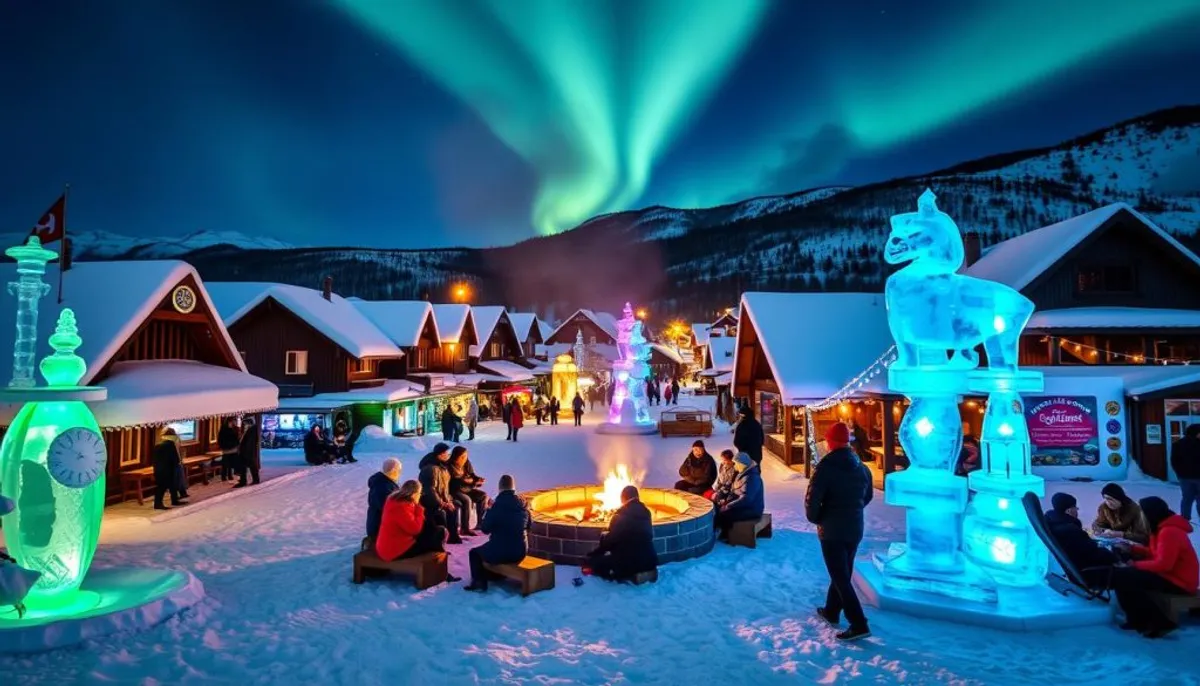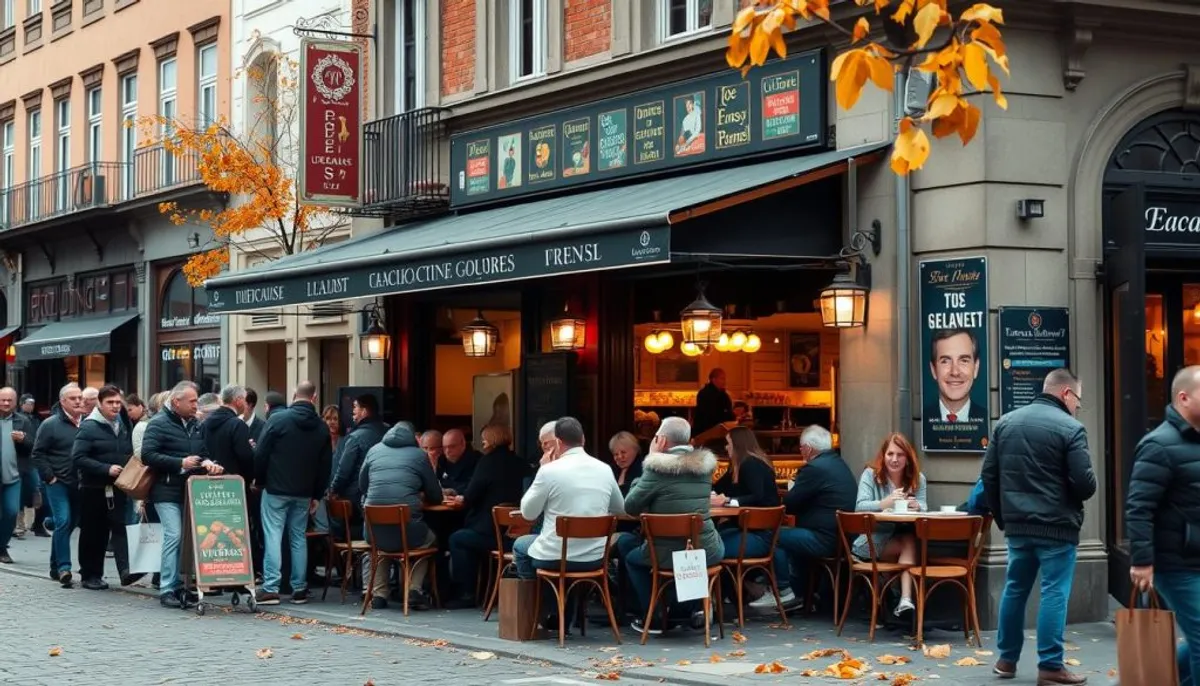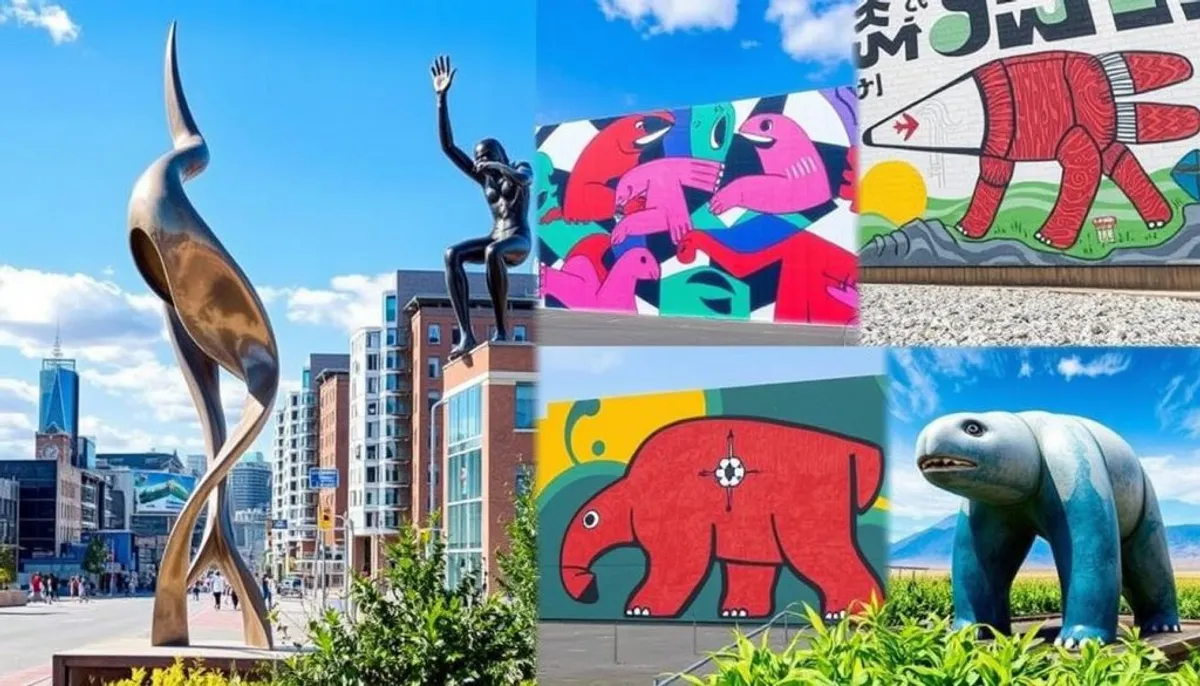Welcome to our comprehensive guide on Quebec culture. Quebec, the cradle of North American Francophonie, offers a unique and fascinating identity. Its cultural heritage, rich and diverse, deserves in-depth exploration.
Quebec culture is a captivating blend of French, Indigenous, and North American influences. It is distinguished by its language, its traditions, its gastronomy, and its arts. This guide will take you on a journey through the different facets of Quebecois identity.

Did you know that 81.8% of the Quebec population uses French as their primary language? This statistic highlights the importance of language in preserving Quebecois identity. Bilingualism is widespread, with 40.6% of residents fluently speaking both French and English.
Quebec has forged its own cultural path, from the Quiet Revolution to feminist movements, through the secularization of the state. Summer festivals, such as the Montreal International Jazz Festival, and unique culinary traditions testify to the vitality of this culture.
Get ready to discover typically Quebecois expressions, colorful swearing, and traditions like Saint-Jean-Baptiste. This guide will help you understand and appreciate the richness of Quebec's cultural heritage.
The Historical Origins of Quebec Culture
The history of Quebec is a complex tapestry of diverse influences, shaped by French colonization, Indigenous presence, and British conquest. These elements have shaped Quebecois identity, creating a unique culture.
The French Heritage and New France
The 17th century saw the arrival of French settlers, who laid the foundations of Quebec culture. They brought with them their language, their Catholic religion, and their traditions. Quebec French, derived from a mix of Norman, Breton, Poitevin, Gascon, and Parisian dialects, developed. By 1744, New France had about 60,000 inhabitants.
The Influence of First Nations
The Indigenous peoples have profoundly marked Quebec culture, just as France influenced its development. They shared their knowledge of nature and introduced new foods. This interaction gave rise to a unique cultural blending, with an estimated three-quarters of fur trader blood and one-quarter Indigenous-Scottish-Irish in certain regions.
The Impact of British Presence
The British conquest of 1760 introduced a new dimension to Quebec culture. The introduction of Anglophone elements shaped a distinct society in North America. Despite these changes, the French Canadian population experienced remarkable growth, rising from 60,000 to 6 million in two centuries.
| Period | Key Event | Cultural Impact |
|---|---|---|
| 17th century | French Colonization | Introduction of the French language and Catholicism |
| Pre-colonization | Indigenous Presence | Sharing of knowledge about nature and new foods |
| 1760 | British Conquest | Inclusion of Anglophone cultural elements |
| 1960 | Quiet Revolution | Period of cultural effervescence |
Language as an Identity Pillar
Quebec French plays a crucial role in Quebec's cultural identity. It is distinguished by its linguistic peculiarities and its rich heritage of expressions. This unique variant of the French language is deeply rooted in the history and culture of the province.
Quebec French and Its Peculiarities
Quebec French is characterized by a distinctive accent and a unique vocabulary. Joual, a popular form of Quebec French, reflects the history and culture of the province. Words like “dépanneur” for convenience store or “tuque” for hat illustrate this linguistic specificity.
Typically Quebecois Expressions
Quebecois expressions enrich everyday language. For example, “avoir les yeux dans la graisse de bine” means to be tired. These expressions add a unique flavor to communication in Quebec.
| Quebecois Expression | Meaning |
|---|---|
| Avoir les yeux dans la graisse de bine | To be very tired |
| Être dans les patates | To be completely wrong |
| Avoir de la misère | To have difficulty |
The Protection of the French Language
The preservation of Quebec French is a priority. The Charter of the French Language, also known as Bill 101, aims to protect and promote the use of French. This law requires the francization of businesses with more than 49 employees and proposes measures to strengthen French education.

The bill on Quebec identity, introduced in 2007, seeks to ensure the predominance of French. It provides for a national language proficiency exam and ties the obtaining of Quebec citizenship to functional knowledge of French.
How to Describe Quebec Culture
Quebec culture is distinguished by remarkable richness and diversity. It is shaped by a set of unique values, traditions, and a way of life. To fully grasp Quebec society, it is crucial to explore its essential foundations.
Core Values
Quebec values are based on equality, freedom, and openness. The pride of being Quebecois is often expressed through the preservation of the French language and cultural uniqueness. UNESCO defines culture as the distinctive spiritual, material, and intellectual traits of a society.
Traditions and Customs
Quebec traditions are deeply rooted in history and daily life. Saint-Jean-Baptiste, celebrated on June 24, is an emblematic holiday. The sugar season in March, when maple syrup is produced, is a cherished tradition. Hockey, though less dominated by local teams than before, remains a strong cultural element.
Quebec Way of Life
The Quebec way of life combines modernity with attachment to roots. Appreciation of nature is reflected in the growing popularity of cottages. Gastronomy, with dishes like poutine, is an essential aspect of culture. Festivals, like the Quebec Carnival, reflect the festive spirit of Quebec society.
| Cultural Aspect | Example | Importance |
|---|---|---|
| Language | Quebec French | Identity pillar |
| Tradition | Sugar season | Seasonal celebration |
| Sport | Hockey | National passion |
| Holiday | Saint-Jean-Baptiste | Quebec pride |
The Arts and Entertainment in Quebec
Quebec is distinguished by a rich and varied artistic scene. Quebec cinema, thanks to directors like Denis Villeneuve and Xavier Dolan, has made its mark on the global stage. Their films, full of depth, have captivated global audiences, showcasing Quebec cinema.
Quebec literature, with authors like Michel Tremblay and Marie-Claire Blais, plays a crucial role. They have succeeded in expressing the essence of Quebec culture through their writings. Their works offer a unique insight into Quebec society and identity.

Quebec music is also very rich. From traditional songs to modern artists like Céline Dion and Cœur de Pirate, it crosses borders. This musical diversity showcases the creativity and open-mindedness of Quebec culture.
Quebec's visual arts are experiencing impressive development. Quebec artists express their worldview through various forms of art. This creativity contributes to shaping Quebec's cultural identity and encourages dialogue between artists and the public.
Despite this dynamism, the Quebec artistic sector faces financial challenges. The budget of the Quebec Arts and Letters Council has decreased, from $185 million in 2022-2023 to a projected $160 million for 2024-2025. This reduction threatens the vitality and diversity of the Quebec cultural scene. It is crucial to support and value the arts to preserve this unique heritage.
Quebec Gastronomy
Quebec cuisine is a unique blend of flavors and traditions. It draws its roots from French heritage while integrating North American influences. This culinary richness is reflected in its iconic dishes and seasonal traditions.
Iconic Dishes
Poutine dominates Quebec cuisine. This comforting dish combines fries, cheese curds, and gravy. Tourtière, a spiced meat pie, is a holiday staple. Pouding chômeur, a dessert born during the 1930s crisis, illustrates Quebec's culinary ingenuity.
Culinary Traditions
Maple syrup is at the heart of Quebec's culinary traditions. Each spring, the harvest of this golden sap leads to festivities. Sugar shacks welcome families and friends to enjoy traditional dishes drizzled with maple syrup.
The Influence of Modern Cuisine
Quebec gastronomy is evolving. It incorporates international influences while valuing local products. Quebec chefs creatively reinterpret traditional recipes. They highlight the 15 flagship products of Quebec, from lobster from the Îles-de-la-Madeleine to wines from the Eastern Townships.
| Dish | Origin | Main Ingredients |
|---|---|---|
| Poutine | Centre-du-Québec | Fries, cheese curds, gravy |
| Tourtière | Saguenay-Lac-Saint-Jean | Ground meat, potatoes, spices |
| Pouding chômeur | Urban Quebec | Cake, maple syrup, cream |
Cultural Festivities and Celebrations
Quebec is distinguished by its abundance of cultural festivities. Annually, over 600 festivals enrich the province, offering a variety of cultural events. Among them, half are seasonal, with 80% occurring during the summer, a period of great excitement.
Saint-Jean-Baptiste
The National Day of Quebec, celebrated on June 24, marks the peak of summer festivities. This day celebrates Quebecois cultural identity, with concerts, parades, and impressive fireworks. The entire province unites to celebrate.
The Quebec Carnival
In winter, the Quebec Carnival transforms the capital into a world of ice and snow. This event attracts visitors from everywhere, offering ice sculptures, canoe races, and festive evenings.
Major Cultural Festivals
Montreal, nicknamed the “world capital of festivals,” hosts world-renowned events. The FrancoFolies and the International Jazz Festival are prime examples. The Quebec Summer Festival and the Western Festival of Saint-Tite attract 400,000 people. These festivals showcase music, art, and traditions, reinforcing Quebec's unique cultural identity.
RelatedRelated articles


